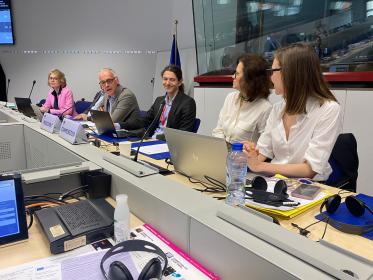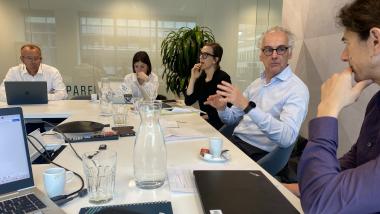EU TCLF Social Partners: Joint statement for quality TCLF jobs in Europe
The EU TCLF Social Partners, CEC, Cotance, Euratex and industriAll Europe call for future EU policy makers to increase their ambition to safeguard the European TCLF sectors and keep good industrial jobs in Europe. The TCLF Social Partners are all signatories to the Antwerp Declaration for a European Industrial Deal and express their full support for a European Industrial Deal to complement the Green Deal and keep quality jobs in Europe.
The European TCLF sectors provide over 1.5 million jobs in the EU (Textiles and Clothing: 1,300,000, Tanning and leather: 34,531 and Footwear: 222,000) and have a combined turnover of over €200 bn (T&C: €170 bn, T&L: €7.3 bn and Footwear: €23.2 bn). However, the industries continue to face a range of challenges, including fierce global competition, high energy prices, an ageing workforce, and a huge increase in new legislation. These challenges are especially tough due to over 99% of companies in the TCLF sectors being SMEs. As such, the European Social Partners call for increased focus and commitment in the next EU mandate to ensure that the TCLF sectors can become green and digital while remaining competitive on the global market and that no region, company or worker is left behind.
In relation to the Antwerp Dialogue, CEC, Cotance, Euratex and industriAll Europe have also signed up to a specific joint statement focused on the social dimension of an EU Industrial Deal which is vital to ensure its success and social acceptance. The following demands from the TCLF Social Partners are essential to guaranteeing quality TCLF jobs in Europe:
- Ensure a Just Transition for our industries and workforce
- Develop a re-skilling and up-skilling agenda
- Promote social dialogue and social partners' involvement
- Ensure a sensible, stable and coherent regulatory environment for our industries
- Access to energy and raw materials
- Free and fair trade to ensure a level playing field
- Sustainability and increased demand for products made in Europe








